
Protect older adults from heat stroke, heat exhaustion, and heat cramps. Stay cool and avoid heat-related health problems. Watch for symptoms of heat.
Why Hot Weather Can Be Dangerous for Older Adults
As temperatures climb, so does the risk of heat-related illness—especially for older adults. While younger people may tolerate hot weather with relative ease, aging bodies respond differently. The body’s ability to control temperature or sweat often decreases with age, and many older adults are more likely to have a chronic medical condition or take prescription medicines that further impact their ability to handle heat and humidity.
That’s why hot weather safety is so important for the elderly. From a simple headache to life-threatening heat stroke, the effects of heat can appear quickly and escalate fast. Fortunately, there are clear steps that older individuals and caregivers can take to reduce risk, recognize early warning signs, and stay comfortable—even during periods of extreme heat.
In this guide, we’ll cover essential safety tips for older adults, from how to stay cool and drink plenty of fluids, to identifying symptoms that mean it’s time to get help. Whether you're an older adult or caring for one, this blog offers practical ways to manage hot conditions and maintain health all summer long.
Recognize When Hot Weather Is Making You Sick: Symptoms of Heat-Related Illness
It’s important to recognize when hot weather is making your body work too hard. For older adults, the signs of heat-related illness may appear more gradually but can become dangerous very quickly. Knowing what to watch for—and what to do about it—can help prevent a minor issue from becoming a serious emergency.
Common early symptoms of heat exhaustion and heat stroke include:
-
Nausea or vomiting
-
Muscle cramps
-
Dizziness or lightheadedness
-
A rapid or weak pulse
-
Excessive or heavy sweating
-
Feeling faint or confused
-
High body temperature without sweating
These signs may appear during or after time spent in extreme heat or direct sunlight, especially if the person has a chronic medical condition or isn’t drinking enough cool fluids.
If you notice any of these symptoms in yourself or someone else, don’t wait. Move to an air-conditioned space or cool, shaded area, place a cool towel on the neck or forehead, and encourage them to drink plenty of cool fluids. If symptoms persist or worsen, get help immediately or contact your local health department for emergency support.
Recognizing these early signs is one of the most important safety tips for older adults during hot weather.
Take Precautions to Avoid Serious Health Risks from Extreme Heat
For older adults, taking proactive steps to stay safe during extreme heat can prevent serious complications like heat exhaustion, heat stroke, or other heat-related illnesses. The key is to limit exposure, adjust routines, and build cooling strategies into your day.
Start by planning activities early in the morning, when outdoor temperatures are lower. Avoid going outside during the hottest hours of the day, typically between 10 a.m. and 4 p.m., especially in hot and humid conditions.
If you do need to be outside, wear light-colored cloth clothing and broad spectrum sunscreen to protect your skin. Use a hat, umbrella, or portable shade structure to block direct sunlight, and keep a cool towel or misting spray on hand to refresh as needed.
Indoors, use air conditioning whenever possible. If your home isn’t equipped, visit public buildings like libraries, shopping centers, or senior centers that are air-conditioned. Even a few hours in a cool space can help lower your body temperature and reduce the strain heat places on your system.
Most importantly, listen to your body. If hot weather is making you sick, don’t try to push through. Instead, move to a cool place, use a cool towel, rest, and rehydrate. Taking precautions to avoid heat exposure is essential to protecting your health—especially if you’re likely to take prescription medicines or live with a chronic medical condition.
Stay Cool with These Hot Weather Safety Tips for Older Adults
When temperatures rise, staying cool is more than a comfort—it's a health necessity. Here are some simple but effective ways older adults can reduce the impact of hot weather and maintain a safe body temperature.
-
Move to a cool place: If your home lacks air conditioning, spend part of your day in a nearby air-conditioned public space like a senior center, shopping mall, or library.
-
Use a cool towel: Placing a cool, damp towel on your neck or forehead helps draw heat away from the body. Products like the MISSION cooling towel use evaporative technology to provide extended cooling relief—just soak, wring, and apply.
-
Take cool showers or sponge baths: This is a great way to quickly lower your body temperature without overexerting yourself.
-
Close curtains and blinds: Keep the sun out and retain indoor coolness by limiting exposure to direct sunlight.
-
Wear breathable, lightweight clothing: Natural fabrics that allow air circulation are best. Avoid tight or heavy clothes that trap heat.
By following these hot weather safety strategies, older adults can reduce their risk of developing heat-related illnesses and feel more comfortable—no matter how hot it gets outside.
Drink Plenty of Cool Fluids: Stay Hydrated to Prevent Heat Stroke
One of the most important ways for older adults to stay safe in hot weather is to drink plenty of cool fluids throughout the day. As we age, the sensation of thirst may become less reliable, but the body still requires fluids to support temperature regulation and prevent heat-related illnesses like heat exhaustion and heat stroke.
Water is the best choice, but sports drinks containing electrolytes can also be helpful—especially if you’re sweating a lot or spending time outdoors. These beverages help replace essential minerals lost through heavy sweating, which is common during extreme heat or physical activity.
Try to avoid alcohol and caffeinated drinks, as they may worsen dehydration. Instead, make it a habit to drink plenty of fluids regularly—even if you don’t feel thirsty. Keep a bottle nearby at all times, and take small sips often.
If you're likely to take prescription medicines or live with chronic medical conditions like high blood pressure or diabetes, speak with your healthcare provider about how much water you should be drinking and whether your medications may affect your body’s ability to control temperature.
Proper hydration supports everything from circulation to cooling, making it one of the most effective, low-effort ways to prevent serious health complications from excessive heat.
Monitor Chronic Medical Conditions and Prescription Medicines in Hot Weather
Many older adults live with a chronic medical condition—such as high blood pressure, heart disease, or diabetes—that can affect how the body responds to hot weather. These conditions may impair the body’s ability to control temperature, putting individuals at higher risk for heat-related illnesses.
In addition, some prescription medicines can interfere with your body temperature regulation or hydration levels. Diuretics, beta blockers, and certain medications for depression or Parkinson’s disease may reduce sweat production, alter fluid balance, or increase heat sensitivity.
If you're likely to take prescription medicines or manage chronic medical problems, it's important to be aware of how your treatment plan may interact with extreme heat. Review your medications with a doctor or pharmacist at the start of each summer, and ask whether any of them could raise your risk during hot conditions.
Stay vigilant for any signs of nausea, dizziness, or rapid changes in body temperature. Make adjustments to your daily routine—such as spending more time in air-conditioned spaces and using cooling towels—to help stay cool and prevent unnecessary complications.
When in doubt, contact your local health department or healthcare provider for personalized advice about staying safe during periods of high heat.
Stay Safe, Stay Cool, and Know When to Get Help
Hot weather can be dangerous, especially for older adults with existing health problems or those who take prescription medicines. But with the right habits and a few simple tools, it’s possible to prevent the most serious heat-related illnesses—including heat exhaustion, heat cramps, and heat stroke.
The keys to hot weather safety are clear: drink plenty of fluids, spend time in air-conditioned or shaded spaces, and use tools like cool towels to keep your body temperature in check. Products from MISSION, for example, provide easy-to-use, evaporative options that help draw heat away from the skin and offer lasting cooling relief—ideal for older adults needing extra protection.
Most importantly, pay attention to how hot weather is making you or a loved one feel. If you experience nausea, confusion, or weakness, get help immediately. These early signs of heat-related illness should never be ignored.
With preparation and awareness, older adults can stay cool, stay safe, and continue enjoying life—even when temperatures soar.

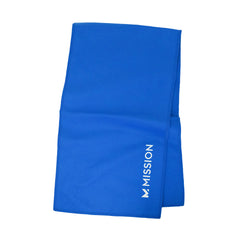
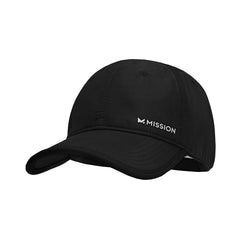
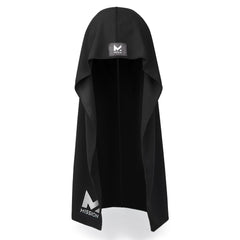
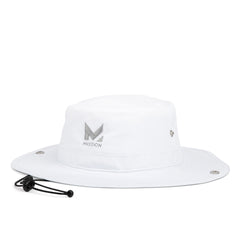
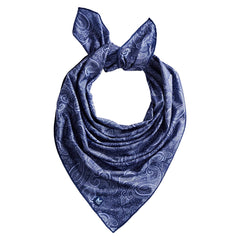
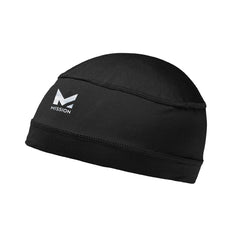

Leave a comment